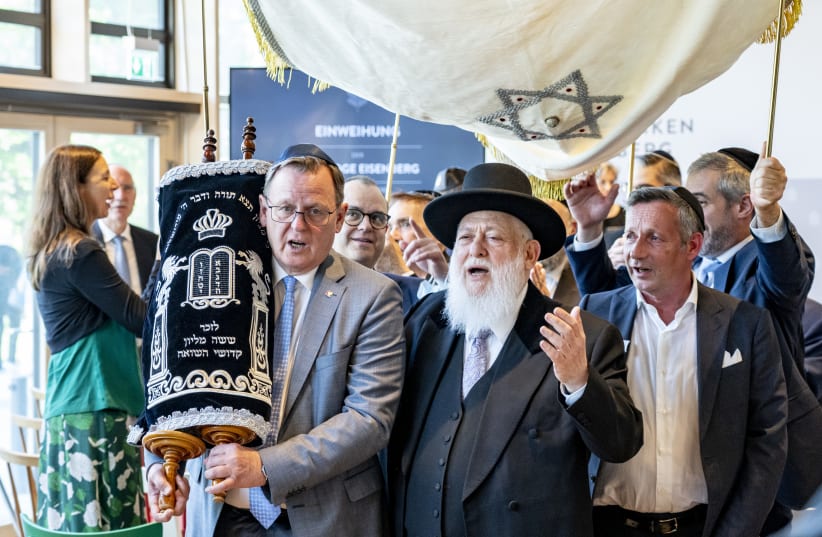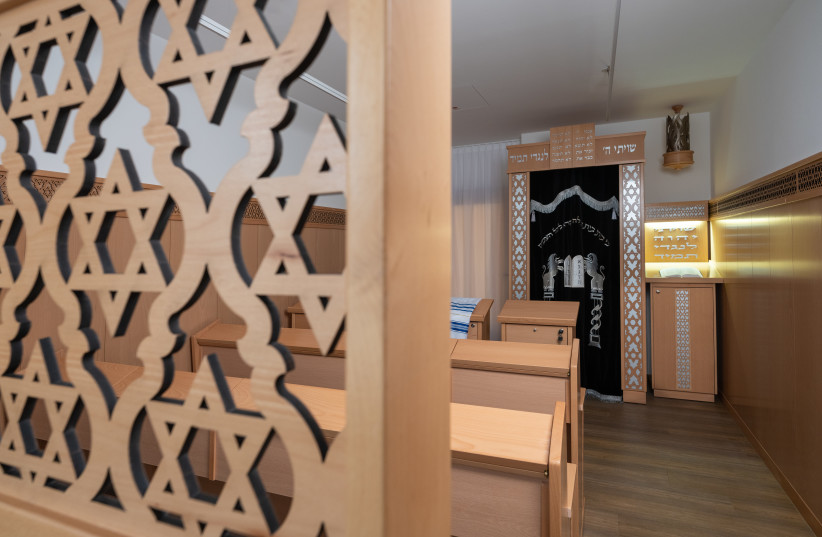At first glance, the orthopedic Waldkliniken Eisenberg hospital in Thuringia, Germany looks more like a fancy hotel than a hospital. It's located in one of the greenest and most beautiful places in the area and its inside is just as impressive as the outside.
Lately, the hospital earned the title of the best orthopedic hospital in the country. For the CEO David Ruben-Thies, this is his life's work that includes a fascinating story.
Ruben-Thies's grandfather was a Nazi who took part in the invasion of Poland in WWII. His other grandfather helped Jews hide in his merchant ships to get them out of the country.
In an interview with Maariv, Ruben-Theis explained that his unusual past helped him decide to build a synagogue in the hospital and include a kosher kitchen in the establishment.
"When I opened the hospital here, I knew that I have to give Jews the right treatment."
David Ruben-Theis
"I have a Jewish name," he said. "My parents wanted people to think of Jews and work toward equality for all. When I lived in Italy during my childhood, I felt the need to learn about Judaism. When I opened the hospital here, I knew that I have to give Jews the right treatment."
Ruben-Thies gave the interview shortly after the hospital opened a synagogue to which a Torah scroll was donated by the area's residents, most of whom are not Jewish. Among the participants in the project was the regional council head who donated his own money toward it.
The hospital serves kosher food
The kosher restaurant that was opened in the hospital is managed by German chef Tim Foller and has a permanent kashrut supervisor - Rabbi Moti Waitsman.
In a conversation with Maariv, Weizman explained that "it's an incredible thing. You and I are talking over a gourmet kosher meal in a hospital in the middle of Germany, and we're talking Yiddish and Hebrew. There's no place like this in the whole of Europe. The hospital's CEO works to integrate the Jews here in an admirable manner. He insisted on strict kashrut, and now even hassidic people from Mea She'arim can eat here."
Alexander Mayerhofer, key account manager in the hospital, said that the place feels like a hotel.
"We don't call people here patients, we call them guests," he said. "At every stage of treatment, you get an experience akin to being hosted in a five- or four-star hotel. The only difference is that you won't see us on a hotel booking website.
"Through my support of Judaism, I hope to atone for my grandfather's sins and at the same time, be a source of pride for my other grandfather."
David Ruben-Theis
"There are private rooms for every guest, and there are people whose job it is to organize comfortable flights for our guests and their families. A Jewish guest came to us for a diagnosis, and he explained that he can only eat kosher food. When we showed him the kashrut supervisor and made it clear that the kashrut here is strict, he was delighted."
"Through my support of Judaism, I hope to atone for my grandfather's sins and at the same time, be a source of pride for my other grandfather," concluded Ruben-Thies. "I invite Jews both from Israel and around the world to come to us and get treatment for comfortable prices. We are located between Berlin and Leipzig, so it's an attractive location."

